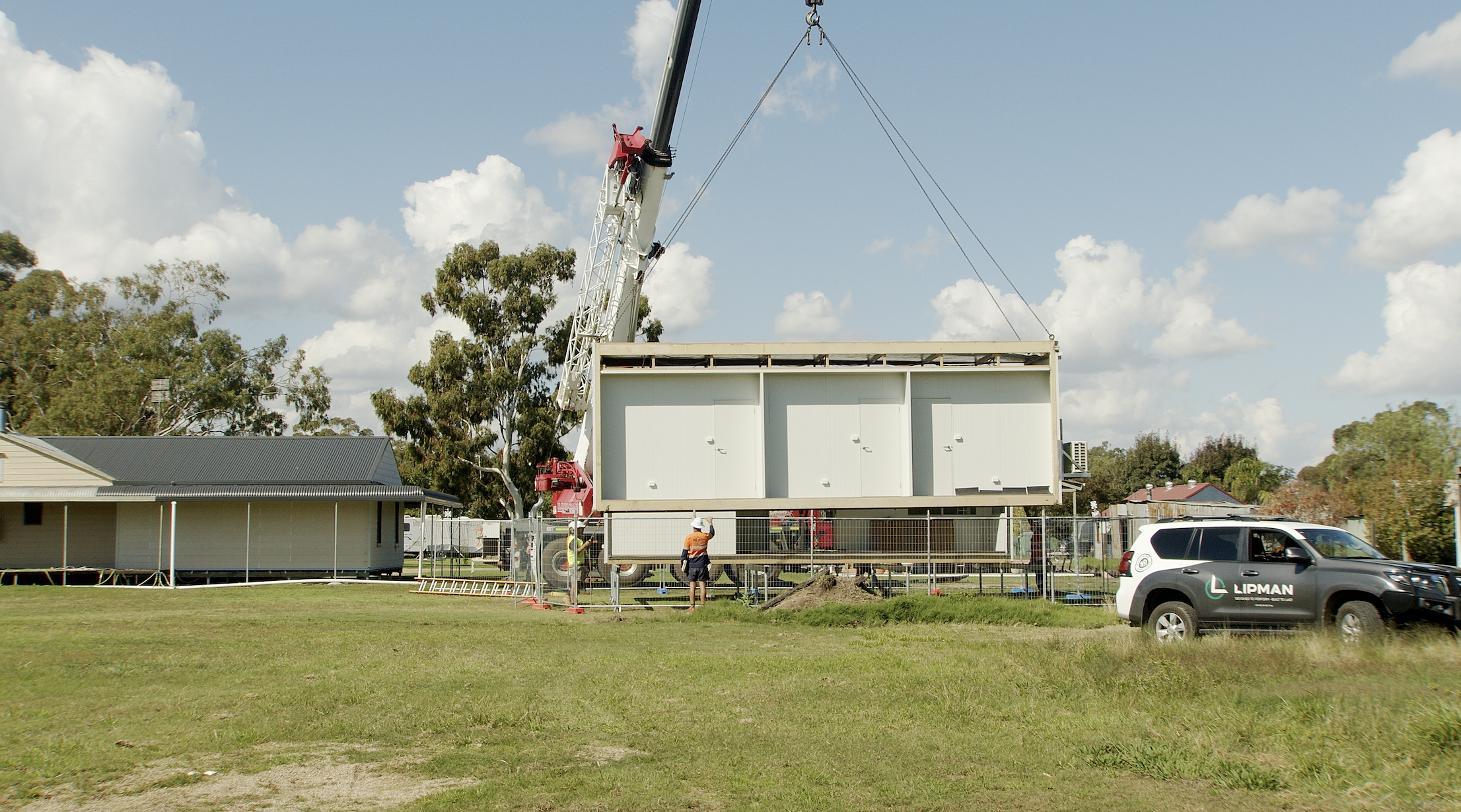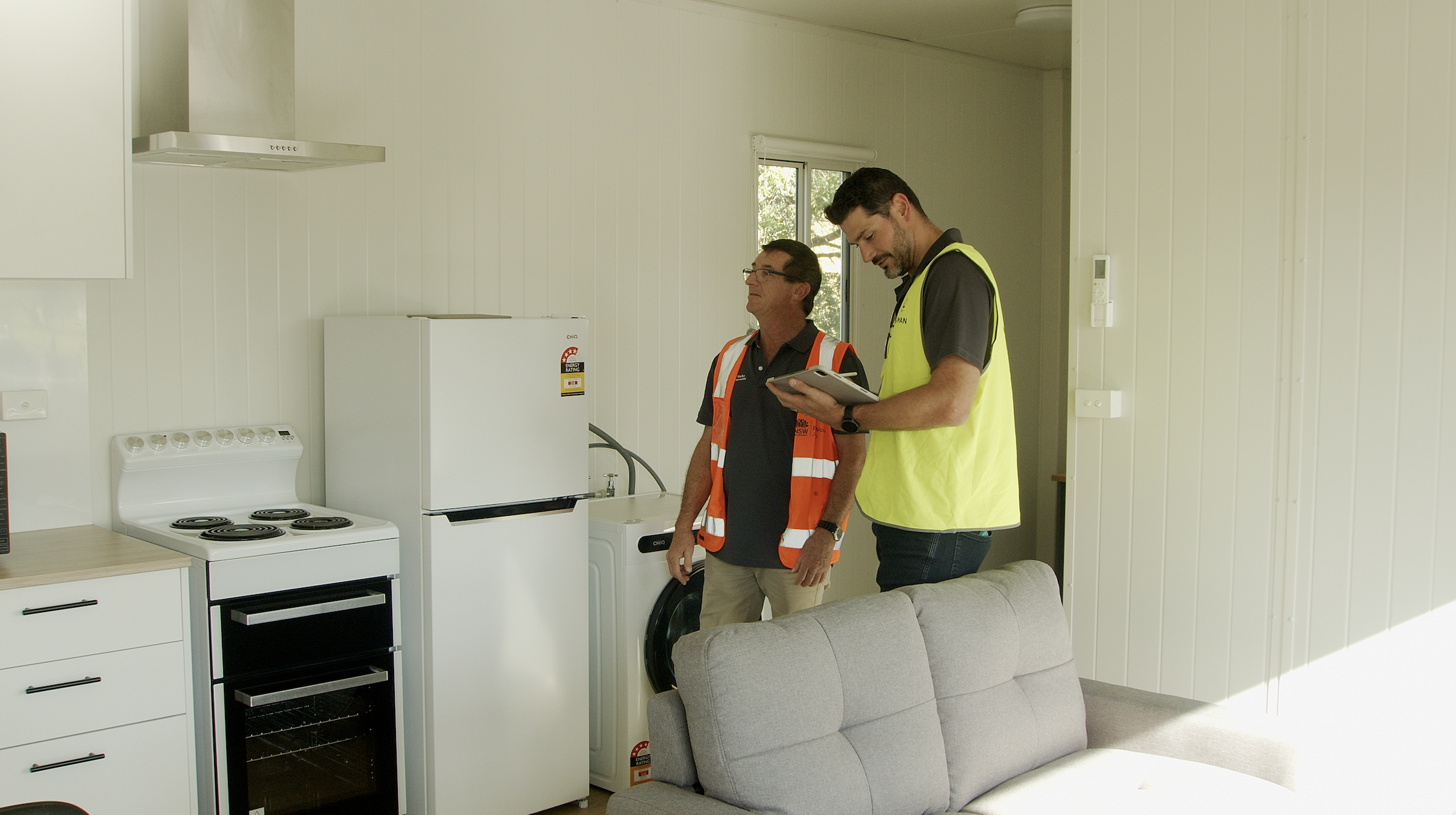Riverina Western Central West temporary housing
NSW Public Works worked with local councils and partners in Eugowra to provide temporary housing for residents affected by the devastating November 2022 flood, with more than 80 pods installed and 17 houses demolished in the first seven months. The program offers residents a chance to rebuild and regain normalcy, with overwhelmingly positive feedback from the community.
Background
On the 14th of November 2022, a catastrophic flood hit the town of Eugowra in the Central West of NSW. Around 90 per cent of the buildings in the area were damaged, displacing many residents from their homes. Other areas throughout the Cabonne, Forbes and Parkes shires were also severely impacted.
To support flood recovery, the NSW Reconstruction Authority (the Authority) is providing residents with temporary housing through the $40 Million Pods on Private Property Program and $19 million At-Home Caravan Program.
“Housing support includes pods placed on private properties and caravans at home,” said Sharryn Lewis, Program Manager – Central West Housing Taskforce, NSW Reconstruction Authority.
The Authority engaged NSW Public Works (NSWPW) to lead the delivery of temporary housing.

Pods on Private Property Program: Supporting flood recovery in Eugowra
Our role
NSWPW were engaged by the Authority to project manage the installation of temporary dwellings in the Central West.
NSWPW engaged Lipman to deliver the project due the positive relationship established during the North Coast temporary village flood recovery projects. There were time savings achieved through this procurement method.
“Our role in the Central West is to help procure the temporary housing and manage the demolition of flood-damaged buildings,” said NSWPW project manager Troy Collins.
Looking forward, NSWPW will be engaged by the Authority to manage the maintenance and demobilisation contracts, as residents will have access to the temporary dwellings for a period of up to two years.
Outcomes
Cooperation between NSWPW and local councils is the key to the program’s success. Lipman had existing local relationships with stakeholders and were able to engage local suppliers, such as electricians and plumbers, to deliver the work. Community feedback about the temporary housing was overwhelmingly positive.
Works were completed in a timely manner, with most people requesting a pod having moved in within two months of applying.
Across the region, 135 pods were delivered and installed for residents within 10 months of the flood event.


